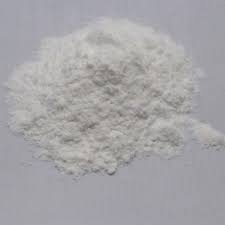
- +86-13363869198
- weimiaohb@126.com

Sep . 25, 2024 03:04 Back to list
china bicalutamide cas 90357-06-5
Bicalutamide An Overview of Its Use and Significance in Cancer Treatment
Bicalutamide, identified by the CAS number 90357-06-5, is a non-steroidal anti-androgen medication widely utilized in the management of prostate cancer. As one of the pivotal players in cancer therapy, it operates by inhibiting the action of androgens (male hormones) like testosterone, which can promote the growth of prostate cancer cells. Given the rising prevalence of prostate cancer globally, the role of bicalutamide in oncology cannot be understated.
Mechanism of Action
Bicalutamide functions primarily by binding to androgen receptors in prostate cells. By occupying these receptors, bicalutamide prevents testosterone from exerting its effects, thereby inhibiting the proliferation of cancer cells that are androgen-dependent. This mechanism is critical as many prostate cancers rely on androgens for growth and survival, making androgen deprivation a fundamental strategy in their treatment. The drug is often used in combination with other therapeutic approaches, including surgery and radiation therapy, to enhance patient outcomes.
Indications and Administration
Bicalutamide is predominantly indicated for the treatment of metastatic prostate cancer, particularly in cases where androgen deprivation therapy is deemed necessary. It is commonly administered in a dosage of 50 mg daily, although the exact dosage may vary based on the individual’s condition and the treating physician’s judgment. In some cases, bicalutamide is also prescribed as a part of combined androgen blockade, where it is used alongside luteinizing hormone-releasing hormone (LHRH) agonists to further decrease testosterone levels.
The oral administration of bicalutamide offers ease of use for patients, contributing to better adherence to the treatment regimen. Typically, it is well-tolerated; however, like many medications, it is associated with a range of possible side effects. Common side effects include hot flashes, breast tenderness, and gastrointestinal disturbances. More severe, but rarer, side effects can involve liver function abnormalities and hypersensitivity reactions, necessitating regular monitoring during treatment.
Efficacy and Clinical Outcomes
china bicalutamide cas 90357-06-5

Clinical studies have demonstrated that bicalutamide can effectively slow the progression of prostate cancer and improve survival rates, particularly when used in conjunction with other therapies. Its use has been associated with a delay in the onset of disease progression in patients with metastatic prostate cancer, marking it as a valuable addition to the oncologist’s arsenal. Furthermore, long-term studies have indicated that bicalutamide may enhance the quality of life for patients by alleviating symptoms associated with advanced disease.
Safety Profile and Considerations
Despite its benefits, the safety profile of bicalutamide is of paramount importance. Regular follow-up appointments are crucial for monitoring potential side effects, especially those concerning liver health. Patients are often advised to report any symptoms such as jaundice or unusual fatigue immediately, as these could indicate hepatic complications. Additionally, due to its hormonal effects, close attention is required for patients with existing liver disease or those on other medications that exert hepatic effects.
Future Perspectives
As research in oncology continues to evolve, the future of bicalutamide remains promising. Investigations into its effectiveness against other forms of cancer and in varying dosage regimens are ongoing. The development of resistance to bicalutamide in some patients underscores the need for innovative treatment strategies. Next-generation androgen receptor antagonists and combination therapies are being explored to overcome this challenge, potentially leading to enhanced therapeutic outcomes.
Conclusion
In summary, bicalutamide is a cornerstone of prostate cancer treatment, offering significant benefits through its anti-androgenic properties. With a well-established mechanism of action, a favorable administration profile, and a commitment to ongoing research, it holds a vital position in contemporary oncology. As we continue to improve our understanding of prostate cancer and the role of hormonal therapies, bicalutamide will likely contribute to advancing cancer care and improving the lives of patients battling this disease.
-
Top CAS: 79099-07-3 Factories & Wholesale Supplier from China
NewsJul.30,2025
-
High-Quality GS-441524 for White Liquid Type Factories & Suppliers
NewsJul.29,2025
-
High-Quality Pharmaceutical Intermediates for Sale – Reliable Supply
NewsJul.29,2025
-
High-Quality Pharmaceutical Intermediates for Sale - Reliable Solutions
NewsJul.29,2025
-
High-Quality Pharmaceutical Intermediates Supplier for Global Market
NewsJul.28,2025
-
GS-441524 for White Liquid Type Factories – High Purity & Reliable Supply
NewsJul.28,2025